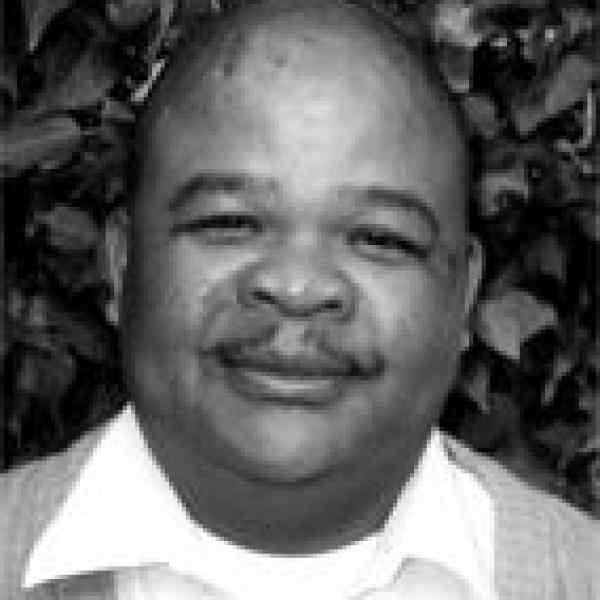Introduction
Shadrack Tshivhase offers struggling day care centers a unique and valuable combination of services that significantly increases the centers' potential to effectively educate and care for South Africa's youngest children and their families.
The New Idea
Shadrack Tshivhase offers a wide range of services to day care centers struggling to provide adequate care and education to small children in poor areas of South Africa. For example, Shadrack collects government-issued food money for the centers, then purchases and distributes the food. As a means of both supplementing the government nutrition program and building the financial self-sustainability of the centers, Shadrack also teaches the staff to initiate and manage their own food gardens. The centers can then both use the produce on-site–a situation which is especially helpful during any delay in government provisions–and also sell it to parents and others to generate income for the centers. In addition, Shadrack offers administrative services such as the writing of business plans, registration forms, and funding proposals, and he assists the centers in understanding the requirements for funding from donors and the government. He has also forged a partnership with an Early Childhood Development training agency to provide drastically reduced rates for the professional development of prospective center staff from poor areas. Furthermore, Shadrack runs a toy library, a concept which was previously unknown in the areas where he works. Through his toy library, he is able to provide various educational toys and curricular aids as resources for center children's cognitive, emotional, and physical development.
The Problem
Huge informal settlements are a nationwide phenomena in South Africa. Although the government supplies a food subsidy to many South African schools, informal settlements often have difficulty accessing the subsidies. One principal obstacle is that many centers in the informal settlements simply do not qualify for government subsidies because they do not meet government requirements. The problems cited by the government include too few staff for the number of children, inadequate space for the number of children, and unqualified teachers. Day care centers also suffer from the general poverty that characterizes the region. High unemployment, coupled with many single-parent families, severely constricts families' abilities to pay school fees. With little or no government or parental financial support, informal settlement centers cannot improve facilities or curricula.Compounding these problems is the general lack of education among people, which is reflected in a serious dearth of qualified teachers. In fact, most teachers are volunteers from the community who have not had specific early childhood care and education training. And most staff do not have the experience to write successful grant proposals, to negotiate simple contracts for services, or to do general accounting. Even when teachers are trained and experienced enough to see the need for curriculum-based and subject-driven education, their resources are so limited that they are not able to purchase appropriate educational toys and teaching aids. Toy libraries do exist in the country, but they only serve small clusters of day care centers, which are usually run by the same person or organization. These libraries generally do not cater to informal settlement schools.
The Strategy
Shadrack began with a pilot project. Setting up a toy library in a packing crate, his initial idea was to build community trust by meeting an immediate community need. Soon he broadened the services he offered. He became a liaison between a government nutrition program and the centers, offering the centers help with writing funding proposals, accounting, and program management. That initial pilot is currently serving one hundred twenty day care centers in the informal settlement of Atteridgeville, outside Pretoria. Currently, he is working in two other communities to set up programs based on the Atteridgeville model, but which cater to specific local needs. Shadrack's vision is to establish centers of support for day care centers in all the provinces to ensure that South African children receive high-quality, well-managed, professional services to augment their core care and education. He is training volunteers and day care practitioners to work with him and organizations such as The Toy and Leisure Library Association, the National Coalition of Early Childhood Development Practitioners, various training centers, and the Ithuba Trust. He considers himself to be at the beginning stages of his work, but even so, he has received recognition from many civil society and government organizations.
The Person
Showing an early interest in the arts, language, and communication, as a child Shadrack wrote many poems and plays that were aired on the local radio station. He and his father did not get along well, and Shadrack eventually left home to live with relatives in Pretoria. Soon thereafter, having fallen in with a delinquent crowd, he made a mistake that led to a transforming life experience–he was arrested for housebreaking and sentenced to eight years in prison. Deciding to make the most of his time behind bars, Shadrack earned his matric (grade twelve) and soon became a key figure in initiating the Adult Basic Education and Training course (ABET) within prisons. One day, while reading a magazine, he came across an article on toy libraries. He developed such an interest in the concept that he contacted a national library leader, thus beginning a lengthy correspondence with him. Due to good behavior, Shadrack was released early from prison and began to pursue his interest in toy libraries. Soon he found himself running his own toy library from a ship container in a small section of the local cemetery. He eventually discovered that many pieces of the Early Childhood Development puzzle were missing, and he began adding the various services that characterize his model today. Shadrack Tshivhase offers struggling day care centers a unique and valuable combination of services that significantly increases the centers' potential to effectively educate and care for South Africa's youngest children and their families.
